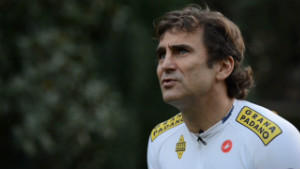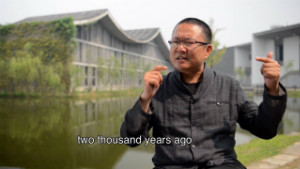- In 2002, De Villiers suffered a major knee injury seven minutes into his international debut
- He was part of the team which won the 2007 Rugby World Cup but tore his bicep during the opening game
- De Villiers was named South African Rugby Player of the Year and Players' Player of the Year in 2008
- The 31-year-old is now the most capped Springbok center in the history of the game
Editor's note: Jean de Villiers was named Captain of the South African national rugby team in June 2012. Despite suffering numerous injuries during his career, De Villiers is now the Springbok's most capped center, with 82 caps in total and 67 at center. De Villiers will lead the Springboks as they face Scotland in Edinburgh on Saturday November 17 and England at Twickenham on November 24 having already beaten Ireland in Dublin.
(CNN) -- I made my debut for South Africa at the age of 21. It was a very special day in my life being able to represent my country, but unfortunately it ended after seven minutes when I tore a ligament in my knee. It wasn't a great start to my international career, although I returned after nine months of rehabilitation.
The most challenging part of rugby, I would say, without a shadow of a doubt, is the injuries -- and I've had a few in my career. While you are going through it you don't always see the light at the end of the tunnel, but I've grown a lot as a person and become closer to my family and friends.
Jean de Villiers, rugby captain
A lot of the time you blame everyone for what happened to you but you just need to take it on the chin and work harder to get back to the top.
I was pretty lucky when I grew up that I went to quite a good rugby school. I think the coaches I had were very good and they played a big part in my development as a rugby player.
I think the 1995 World Cup final was probably one of the best days in South African history (it was the first major sporting event to take place in South Africa after the end of apartheid and South Africa won). It has got such a big part to play in uniting the nation and was definitely the best day that we've had as a rainbow nation since 1992 (when white South Africans voted to end apartheid).
 Sculptor shapes lifelike masterpieces
Sculptor shapes lifelike masterpieces
 Legless F1 driver masters handcycling
Legless F1 driver masters handcycling
 Human to Hero: Wang Shu
Human to Hero: Wang Shu
Read related: Wheelchair warrior in the world of 'murderball'
I grew up in Paarl (a small town in South Africa's Western Cape province) and I remember running in the streets with the national flag and seeing everyone outside and (car horns) hooting. It was a fantastic day. It showed what sport can do to unify a nation -- and definitely what rugby can do in South Africa.
When South Africa won the World Cup in 2007, it was a bit different for me because I got injured in the first game -- and ruptured my bicep. Even though I was part of the team and got my gold medal for winning, it was a bit of an empty feeling. I never really felt that I deserved it, but that was a great day, (especially) when the team arrived back in South Africa to see the faces of millions of South Africans. I think that's the pleasure you get from playing rugby -- to see the difference that you can make in the lives of others.
I met Nelson Mandela and took a photo with him and the William Webb Ellis Cup (awarded to the winner of the Rugby World Cup) when we won it in 2007. That was very special. He is an unbelievable person and I was very fortunate to meet him. He has a great love of rugby. It was funny, a couple of times he came to our games. Let's say of the five or six times he came, we played unbelievably well and won all of those games. He's just got that aura to get the best out of any person.
Jean de Villiers, rugby captain
Read related: Boxing's first female Olympic gold medalist: 'I thought I couldn't continue'
My role on the pitch is taking the decisions, making sure I handle the referee in a good way and making sure I get the message across to the team. When I feel some of the calls are going against us my role is to be able to have a talk to the referee to get a feel for where we're at and what we need to change -- maybe put a little bit more pressure on him to get the calls to go our way.
Playing under South Africa's first black coach (Peter de Villiers) was good for me. I played under him in the Under-19 team. He was a different coach, he had different methods and I think a lot of the time he was misunderstood. But I think it was great for South Africa to have him there and he did a good job.
It's difficult to single out one guy who is my toughest opponent, but because I've been playing for 10 years, I would say a combination of Tana Umaga, Stirling Mortlock, Brian O'Driscoll and more recently Sonny Bill Williams and Ma'a Nonu -- it's always a great challenge playing against those guys.
Read related: 'Lucky' F1 driver lost both legs and triumphed with Paralympic gold
I'm quite proud to say that I'm the most capped Springbok center in the history of the game and I hold the record for the most-capped center pairing in Bok rugby with my friend Jaque Fourie, so that's a unique record, something that I'm very proud of and also being the 54th captain of my country is quite special as well.
These Autumn Internationals (the current series of three Test matches against Ireland, Scotland and England) are very important games for us to get a feeling as to the conditions we'll be playing in in 2015 for the World Cup. We started this year with a new coach, a new captain and a lot of new players so for us it's just about rebuilding a team and growing.